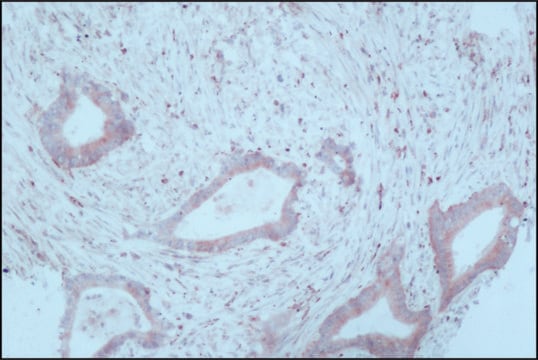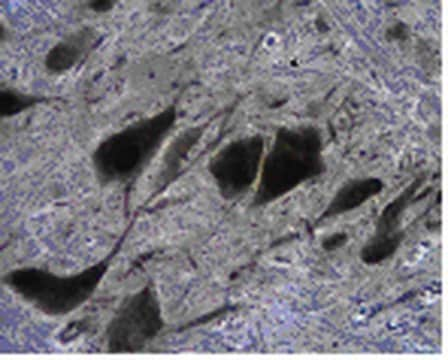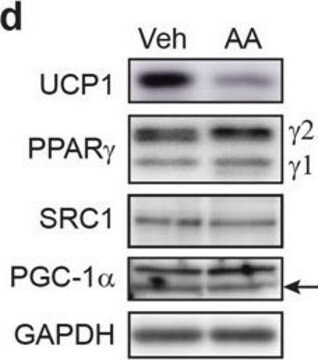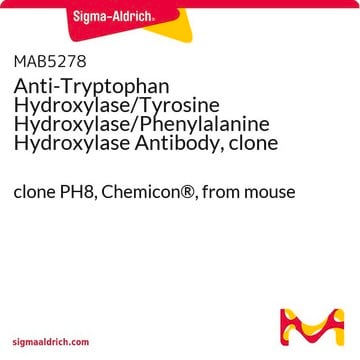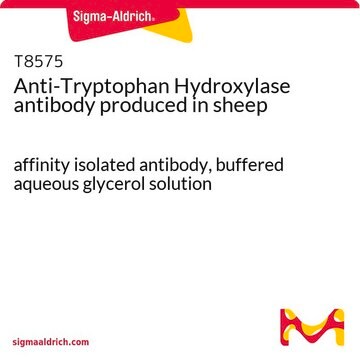SAB4200723
Anti-Tryptophan Hydroxylase antibody, Mouse monoclonal
clone WH-3, purified from hybridoma cell culture
Sinónimos:
Anti-TPH, Anti-TpOH
About This Item
Productos recomendados
biological source
mouse
antibody form
purified from hybridoma cell culture
antibody product type
primary antibodies
clone
WH-3, monoclonal
form
buffered aqueous solution
mol wt
antigen ~55 kDa
species reactivity
mouse, human, rabbit, sheep, rat
concentration
~1.0 mg/mL
technique(s)
immunoblotting: 2-4 μg/mL using rabbit pineal gland lysate
immunofluorescence: suitable
immunohistochemistry: suitable
isotype
IgG3
shipped in
dry ice
storage temp.
−20°C
target post-translational modification
unmodified
Categorías relacionadas
General description
Immunogen
Application
- immunoblotting
- immunohistochemistry
- immunofluorescence
Biochem/physiol Actions
Physical form
Disclaimer
¿No encuentra el producto adecuado?
Pruebe nuestro Herramienta de selección de productos.
Storage Class
12 - Non Combustible Liquids
wgk_germany
nwg
flash_point_f
Not applicable
flash_point_c
Not applicable
Certificados de análisis (COA)
Busque Certificados de análisis (COA) introduciendo el número de lote del producto. Los números de lote se encuentran en la etiqueta del producto después de las palabras «Lot» o «Batch»
¿Ya tiene este producto?
Encuentre la documentación para los productos que ha comprado recientemente en la Biblioteca de documentos.
Nuestro equipo de científicos tiene experiencia en todas las áreas de investigación: Ciencias de la vida, Ciencia de los materiales, Síntesis química, Cromatografía, Analítica y muchas otras.
Póngase en contacto con el Servicio técnico